Report from a forum on corporate concentration in agriculture and food, and its implications on food sovereignty in South East Asia
On 24 July 2018, Focus on the Global South, ETC Group, and the Chulalongkorn University Research Institute (CUSRI) organized a forum in Bangkok on corporate concentration in agriculture and food, and its implications on food sovereignty in South East Asia. The forum brought speakers from a number of national, regional and international organisations, and the audience of around 60 individuals comprised representatives from social movements, civil society organisations, academia, and the general public.
Current Context
The forum was organized to shine a light on the handful of corporations that are rapidly gaining domination over the food and agriculture sector. Silvia Ribeiro from ETC Group described how in a span of just 12 months, six agrochemical/seed corporations have managed to complete the three largest mega-mergers in the history of farm inputs. The mergers include deals between Bayer and Monsanto, Chem China and Syngenta, and Dow and Dupont. These merged companies, including BASF, now control more than 60% of the commercial seed market, 70% of agrochemicals, and 100% of transgenic seeds.
These mergers are part of a growing trend, where other mergers are taking place in other parts of the industrial food chain—from farm equipment and machinery, to fertilizer, to retail. —with corporations taking even greater control of agricultural production.
Neth Daño from ETC Group gave a presentation on how new agricultural technologies are serving to reinforce corporate concentration. While the mergers of seed and chemical companies are happening, other big corporations are moving into the agricultural sector, blurring the traditional boundaries between different industries.
We are now entering “Industrial Revolution 4.0” in which the economy is driven by high technologies that will end up defining many aspects of our lives, including the production and delivery of food. Even if the majority of the world’s food is produced by small-scale farmers using “low/no technology” traditional food production methods, governments and multilateral bodies are championing corporatized high tech agriculture as the solution to food insecurity. As a result, public money is being used to invest in technology for food and agriculture that ends up profiting corporations.
Meanwhile, new technologies are being developed or have been developed that could drastically change the nature of food production as well as how people access food. These include technologies such as “Computer Assisted Organic Synthesis” (the capability to synthesize organic molecules on demand), synthetic biology, digital farming, and distribution via e-commerce. There are also big players working on developing artificial intelligence (AI), including Google, Apple and Facebook. AI is being applied to food through genetically modified organisms (GMOs), and is driving synthetic biology.
Witoon Lianchamroon and Kingkorn Narintarakul from BioThai presented Thailand’s example of how large conglomerates are impacting the food chain and local markets. A giant food conglomerate is consolidating its power over all aspects of the food chain in Thailand, from seeds, feed and fertilizer to livestock production, processing, and retail. The company is backed by a network of highly influential politicians, who have likely enabled its growing share of Thailand’s food and agriculture industry.
The food conglomerate has also expanded its empire beyond Thailand and has long been penetrating markets abroad. It has operations and investment in 14 countries, and exports to approximately 40 countries across five continents, catering to over three billion of the world’s population. It is one of the biggest chicken producers in the world, and the fourth largest pork producer.
The speakers discussed the serious impacts of growing corporate control in food and agriculture on food producers and consumers. There will be a stronger push for agro-chemicals and transgenic seeds in food production, an increase in the prices of chemical inputs, fewer farms, and greater rural unemployment. These corporations meanwhile will have greater power to influence and perhaps even define policies that serve the corporate agenda and interests, as public sector research on agriculture shrinks. Impacts on consumers include higher prices, pesticide residue on fresh produce, and a massive decline in nutritional value of the food we eat.
At the heart of the issue of corporate concentration is the issue of power, as few companies capture and concentrate tremendous control over a broad swath of the industrial food chain. The control over technology represents the biggest challenge for people’s movements fighting against this trend. How do we continue and intensify our struggle, not only to push back against corporate concentration, but also resist the logic that forces society to adhere to this trend?
Enablers of Corporate Concentration
A second set of speakers discussed the policy infrastructure that entrenches corporate power and facilitates corporate concentration. Benny Kuruvilla from the Transnational Institute (TNI) explained how two decades since the establishment of the World Trade Organization (WTO), new free trade agreements (FTAs) continue to be negotiated to enhance access of corporations to developing country markets. These FTAs, such as the Regional Comprehensive Economic Partnership (RCEP), negotiate far beyond free trade. FTAs have created a regulatory and policy environment that is biased in favor of corporations, and have far reaching impact on farmers’ rights, and agricultural policies. By enabling greater power for corporations, these FTAs also restrict the ability of governments to protect agriculture, particularly peasant agriculture.
[Click an image to view the presentation (PDF)]
Joseph Purugganan from Focus on the Global South explained the Investment State Dispute Settlement (ISDS), which is on one of the most insidious features of mega-FTAs, which gives corporations the power to sue governments in courts or tribunals outside their legal systems. Sanya Smith from Third World Network gave an overview of FTAs under negotiation, focusing on provisions that will affect food producers. These include intellectual property rights that will extend patents on seeds, agricultural machinery, and agrochemicals, thereby restricting farmers from freely deciding on which farming methods to use, including saving and exchanging/selling protected seeds.
Kartini Samon from GRAIN linked these trade and investment trends to the issue of land and natural resource grabs. The 2007-08 global food price crisis precipitated a wave of global land grabbing. Land concentration in Asia is higher than ever before, with just 6% of Asian farm owners holding around two-thirds of farmland. Land grabbing in Asia is largely driven by actors from within the Asia region, typically corporations from China, South Korea, India, and Indonesia, alongside political elites and the military. While the number of cases of land grabs are decreasing, the size of the lands being grabbed of late are actually increasing—millions of hectares are being grabbed by corporations. Another big issue is the abandonment of investments, where huge tracts of land are transferred from the public domain, or from the hands of farmers to corporations, only to be abandoned and left idle because of failed investments.
FTAs facilitate land concentration by bringing about laws and policies that enable the transfer of lands from small farmers to large agribusiness.
Multilateral agencies that should be working to rein in corporate power are instead enabling it. Shalmali Guttal from Focus on the Global South explained that these agencies, including the United Nations (UN), development banks, and international financial institutions, are dependent on corporate finance for their operations, and so their approach is completely market and growth-oriented. While pushing win-win, multi-stakeholder approaches, and corporate social responsibility, such agencies, including the UN’s Food and Agriculture Organisation (FAO) end up in advancing corporate interests. Hard laws are demanded to protect corporate interests, whereas soft laws are promoted to address social and environmental concerns, and create an illusion of corporate accountability.
Fighting Back
In the face of growing corporate concentration and a system that entrenches corporate power, the participants and speakers discussed the key question of how can we as citizens challenge these trends? Also, how do we empower ourselves to be stronger and turn despair into hope?
Firstly, as several of the speakers stressed, we must recognize the role of small-scale producers, or the Peasant Food Web, which feeds 70% of the world’s population. We need to ensure that farming technologies and equipment respond to the actual needs of these farmers, and they have access to them. At the same time, we must understand that the issues discussed are not just problems for the peasants to solve – it’s one all of us have a stake in because it affects our food, our health, and our climate, so we must do what we can to support the peasant food web.
Secondly, we must continue to contribute to and strengthen local struggles and campaigns. This includes supporting communities that are pushing back against projects that encroach on community land and natural resources, and supporting policies that stop the enablers of corporate concentration. International campaigns mentioned which support peasant rights and address corporate power include the campaign for a UN Declaration on Peasants Rights, and the international campaign to tame or dismantle corporate power, particularly corporate concentration and overall, the paradigm of corporate or market-led development.
Members of Thai social movements in attendance shared their experiences of fighting against corporate concentration in agriculture, and how they are protecting their food sovereignty. These movements— which include the Northern Peasant Federation of Thailand, Southern Peasant Federation of Thailand, Northeast Land Network, and Assembly of the Poor — spoke of how they are promoting, teaching, and practicing sustainable farming methods in their networks, mobilizing against the rise of corporate power, and campaigning for land redistribution.
The experiences from Thailand, particularly the campaign against a giant food conglomerate, were upheld as good models for how other movements could take on large corporations. It is important to name the corporation, the people behind it and their enablers, and understand their scope of business. Furthermore, undertaking a strategic regional South-East Asia campaign against the giant corporation as discussed as a possible way of bringing movements together and collaborating on actions.
Challenges for Movements
A key challenge for people’s movements is the wily manner in which corporations appear to address peoples’ demands. They have co-opted the language of people’s movements, including the concepts of sustainability and agro-ecology, to conform to their business as usual approach to prioritize profits. These greenwashing tactics of corporations are bolstered by multi-stakeholder and “win-win” approaches supported by multilateral institutions and many governments, in order to avoid accountability and changing harmful business practices.
Another difficulty that was discussed is how movements can deal with new challenges that are ever changing, and are often very complex to understand, particularly the rise of giant technology firms. To complicate matters, social movements often use the means of communications offered by these same companies we are fighting—Google, and Facebook. So how do we find new platforms of communicating?
Meanwhile, each speaker spoke about the challenge of operating in an environment in which the power of the State is weakened in relation to big business. Meanwhile, shrinking civil society space, and the rollback of democracy and human rights are impacting the ability of movements to take on these issues.
Ways Forward
While the overall trends look quite bleak, participants asserted that we must recognize that our campaigns and struggles have had an impact, and have been able to slow down corporate concentration. The situation would have been worse if people had not resisted, and some measures have indeed served to soften the impact of some issues. However, the challenge presented by this matter is that such measures and venues have a tendency to divide the movement. For instance, corporate hijack of the terms ‘sustainability’ and ‘agroecology’ have made mechanization more acceptable to some NGOs.
Moving forward, we must continue to build peoples’ power to challenge not just corporate concentration and mergers, but the whole logic and paradigm of corporate and market-led development. Furthermore, we, too, need to concentrate our movement power and influences. While corporations consolidate their power, different movements should explore more convergences, coordinate actions better, and strengthen our collective struggle. Movements must connect the different struggles concerning land, forests, lakes, oceans, especially integrating the role and power of women.
One way to achieve this is to follow the Thai movement example of confronting the problem head-on by putting real names, faces and concrete analysis so that it is better understood by our allies. In this case, corporate concentration of food and agriculture is not just the problem of peasants but of everyone because not only does everyone need food, it is also a matter of health and sustainability in the context of climate change.
Concretely, the Thai campaign on a giant food conglomerate can be expanded to all Southeast Asian countries. For example, Cambodian farmers need to be educated about the dominance of corporations, and how corporate dominance is linked to human rights violations and land grabbing.
Movements also have to deal with the weakening role of the state as a result of the rise of corporate power. Generally, states must address this issue as a strategic matter of economic policy: they must support and empower local communities as economic units that need a viable development plan.
In reality however, democracy and human rights are in retreat and civil society space is shrinking in many countries. So the states are in a way being selective about which aspects of power they are surrendering.
The struggles at the local level need to be linked to regional and international work to stop mega-free trade agreements. NGOS need to catch up with the realities at the grassroots, especially mobilization against land issues and in practicing the alternatives that the movement as a whole is seeking. Solutions and alternatives exist, and this is why movements must bridge the distance between their struggles—between those who work in the urban areas on policy, and the grassroots who live in the struggle and practice the alternatives.

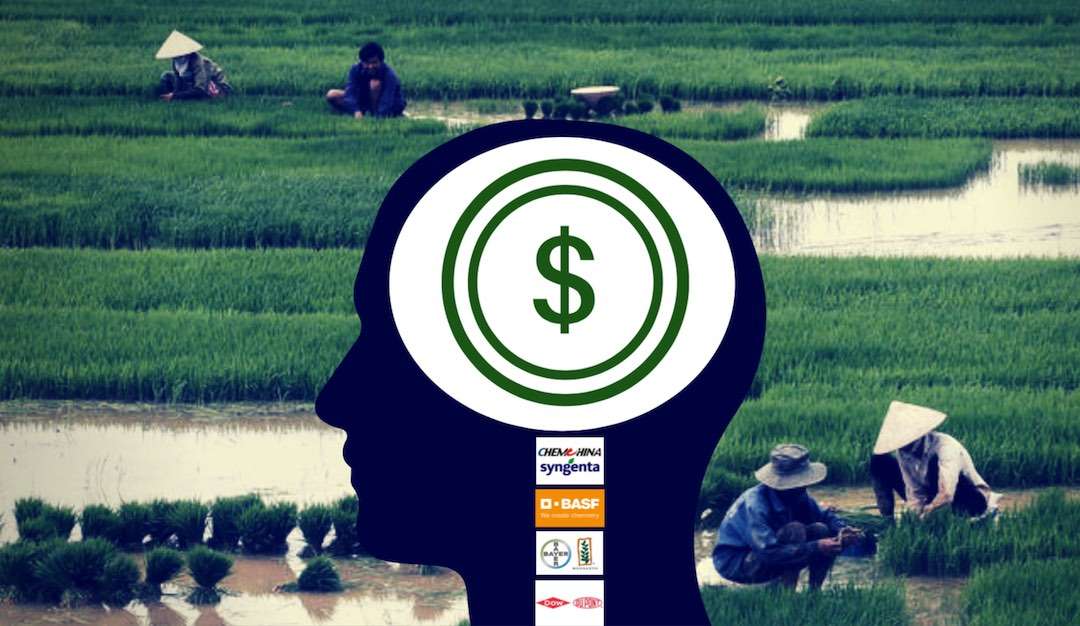
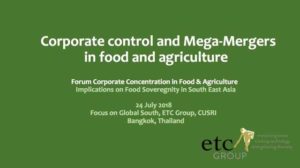
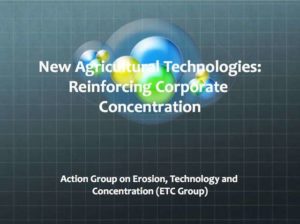
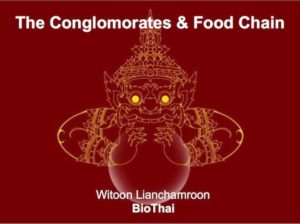

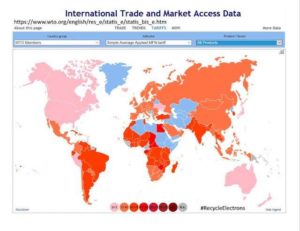
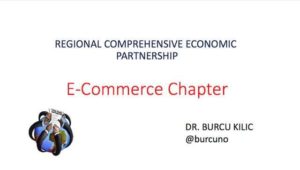
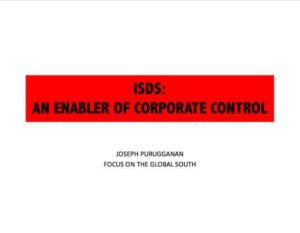
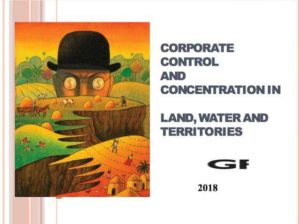
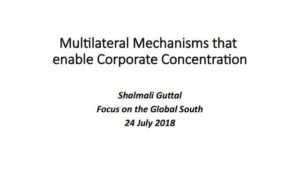

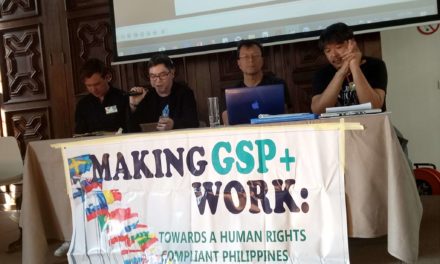
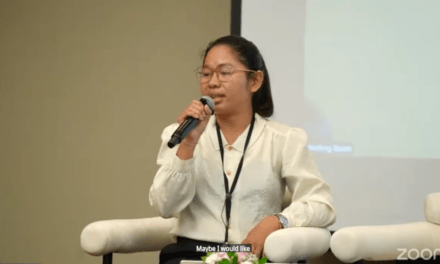

![[IN PHOTOS] In Defense of Human Rights and Dignity Movement (iDEFEND) Mobilization on the fourth State of the Nation Address (SONA) of Ferdinand Marcos, Jr.](https://focusweb.org/wp-content/uploads/2025/07/1-150x150.jpg)



